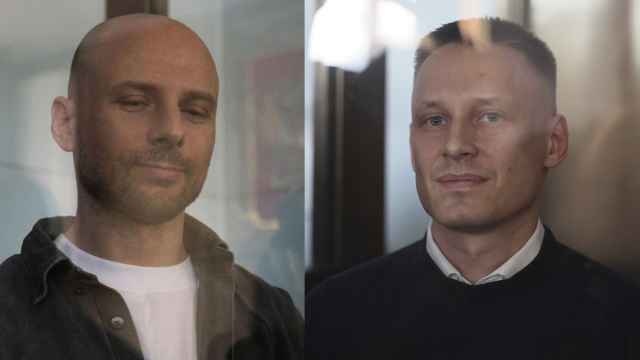Moscow-based investment fund United Capital Partners, or UCP, has voted against appointing Boris Dobrodeyev, son of the head of Russia's largest state-run media corporation, the new CEO of leading social network Vkontakte, or VK, in which it holds a 48-percent stake.
UCP will agree to appoint Dobrodeyev, however, if Russian internet company Mail.Ru — owner of the other 52 percent of VK — agrees to drop its lawsuit in the London arbitration court contesting UCP's purchase of VK shares last April, and help the fund transfer control of the Telegram instant messaging service from VK's founder, Pavel Durov, to VK, Mail.Ru said in a statement cited by PRIME on Wednesday.
There is no love lost between Durov and UCP — on April 30, Durov filed a lawsuit against his former business partners and UCP in a U.S. court, accusing them of resorting to extortion in an attempt to gain control of Telegram, a version of popular messaging application WhatsApp with beefed up security to prevent messages from being intercepted.
There is not much warmth between UCP and Mail.Ru either. UCP rejected Dobrodeyev's candidacy at a meeting of Vkontakte's board of directors on Tuesday on the basis that he does not have enough management experience and is not an "independent" candidate, Vedomosti reported Wednesday, citing the fund's documents.
UCP blames Mail.Ru Group for the delay in appointing a new chief executive, which has now dragged on for over two months. Viktoria Lazareva, a partner at UCP, said that there are many independent, experienced candidates, but that Mail.Ru Group always rejects them.
Billionaire Alisher Usmanov's Mail.Ru Group, Russia's second-largest Internet company, nominated Dobrodeyev earlier this month to replace the 29-year-old Durov, who fled to the U.S. in April after coming under pressure from the Russian security services, the FSB. Durov claims that the FSB requested information on VK users, and turned up the pressure on him when he refused to hand anything over.
Dobrodeyev's father, Oleg, heads the All-Russia State Television and Radio Broadcasting Company, a state media giant that runs five national television channels, a plethora of Internet projects and more than 80 regional television and radio networks.
UCP has so far put forward at least two potential chief executives — a former shareholder in VK, Lev Leviyev, who sold his 8-percent stake last year following raids on the site's St. Petersburg headquarters, and Alexei Zakharov, head of the online recruiter Superjob.
See also:
Vkontakte Founder Sues Former Partners for Extortion in Battle Over Messaging App
A Message from The Moscow Times:
Dear readers,
We are facing unprecedented challenges. Russia's Prosecutor General's Office has designated The Moscow Times as an "undesirable" organization, criminalizing our work and putting our staff at risk of prosecution. This follows our earlier unjust labeling as a "foreign agent."
These actions are direct attempts to silence independent journalism in Russia. The authorities claim our work "discredits the decisions of the Russian leadership." We see things differently: we strive to provide accurate, unbiased reporting on Russia.
We, the journalists of The Moscow Times, refuse to be silenced. But to continue our work, we need your help.
Your support, no matter how small, makes a world of difference. If you can, please support us monthly starting from just $2. It's quick to set up, and every contribution makes a significant impact.
By supporting The Moscow Times, you're defending open, independent journalism in the face of repression. Thank you for standing with us.
Remind me later.





